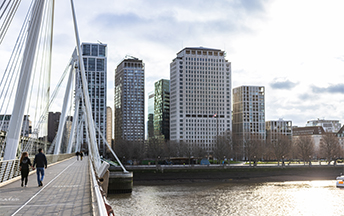Brunei Darussalam
5 Employees
-
Third-party revenues
$205,511,550
-
Related-party revenues
$3,726,467
-
Total revenues
$209,238,017
-
Profit before tax
$85,674,760
-
Tax paid
$35,949,831
-
Tax accrued
$53,930,381
-
Tangible assets
$332,924,780
-
Stated capital
$338,933,139
-
Accumulated earnings
$7,711,871
Main business activities
- Upstream
Shell’s footprint
Shell has been present in Brunei for more than 90 years and our activities are mainly carried out by non-Shell-operated joint-venture companies. The figures above are for Shell’s wholly owned entities in Brunei that are active in exploration and production.
Country financial analysis
The statutory petroleum income tax rate in Brunei is 55%. Production-sharing contracts (PSCs) are assessed according to the individual legal entity or asset. This means that losses in one PSC may not be offset against profits arising elsewhere.
Our Payments to Governments Report for 2021 shows that Shell paid around $8.6 million in production entitlements and royalties.









